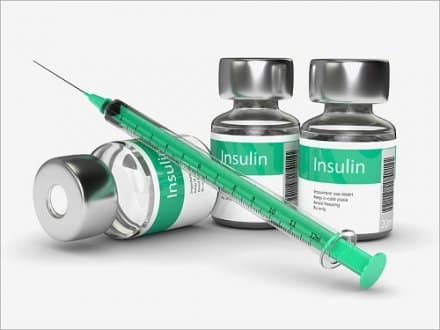What is insulin?
Insulin is a natural hormone made by the beta cells in the pancreas. When you eat, glucose is absorbed into the bloodstream. This hormone works by transporting glucose from the bloodstream to the body tissue where it is stored and used for energy. Without insulin, the level of blood sugar rises, which is a common sign of diabetes. Insulin is usually prescribed to people with type 1 diabetes because they cannot make insulin on their own. Type 1 diabetes is a chronic condition where the beta cells make little or no insulin as a result of attack by the immune system. Hence, people with type 1 diabetes need to take insulin so that they can survive. People with type 2 diabetes can make insulin, but either don’t produce enough or are resistant to it. Insulin can still be prescribed to people with type 2 diabetes to help them control their blood sugar levels better.
Insulin onset and duration of action
Insulin is classified according to how quickly it starts to work in the body, when its effects are at its peak, and how long it keeps working to lower blood sugar levels. Depending on the onset, peak and duration, insulin can be classified into the following groups:
Rapid acting insulin
When injected subcutaneously into the fat tissue of your abdomen, buttocks, or upper arm, fast acting insulin starts to work quickly in reducing high blood sugar levels. Examples of rapid acting insulin include Insulin Lispro, Insulin Aspart and Insulin Glulisine. Rapid acting insulin usually has an onset of between 10 to 30 minutes and a period of 4 to 6 hours.
Short acting insulin
Short acting insulin such as Novolin has a slower onset time compared to rapid acting insulin. That makes short acting insulin suitable for specific people. When injected under the skin, short acting insulin start to work after 30 to 60 minutes. Short acting insulin is usually taken before a meal. Your doctor will advise you how long before a meal you should take short acting insulin.
Intermediate acting insulin
Intermediate acting insulin is usually absorbed into the bloodstream after 1 to 2 hours and the effects can last up to 24 hours. Intermediate acting insulin is normally taken together with short or rapid acting insulin. Intermediate acting insulin is also known as NPH or Neutral Protamine Hagedorn insulin. Examples of intermediate acting insulin is Hypurin Isophane. When injected subcutaneously, hypurin isophane works for a duration of 18 to 24 hours. This helps this type of insulin to work throughout the day in lowering blood sugar levels.
Long acting insulin
Long acting insulin is available in analogue and animal forms. When injected subcutaneously, long acting insulin starts to work slowly and the effects can last throughout the day. You can take long acting insulin to lower blood sugar levels between meals, overnight or while fasting. Examples of long acting insulin include Insulin Glargine, Insulin Detemir, and Insulin Degludec.
Insulin peak times
Insulin peak times refer to how long it takes before the maximum effects are felt. Rapid acting insulin such as Insulin Lispro and Insulin Glulisine has a peak time of 30 to 90 minutes. Insulin Aspart, which is rapid acting insulin, has a peak time of 40 to 50 minutes. Short acting insulin such as Novolin has a peak time of 2 to 5 hours, which is comparable to regular acting insulin. Intermediate acting insulin has a peak time of 4 to 12 hours. However, long acting insulin such as Insulin Degludec and Insulin Glargine has no peak time compared to other types of insulin. This makes long acting insulin suitable for people who want to consistently lower their blood sugar levels during the day.
Disclaimer: Please note that the contents of this community article are strictly for informational purposes and should not be considered as medical advice. This article, and other community articles, are not written or reviewed for medical validity by Canadian Insulin or its staff. All views and opinions expressed by the contributing authors are not endorsed by Canadian Insulin. Always consult a medical professional for medical advice, diagnosis, and treatment.


